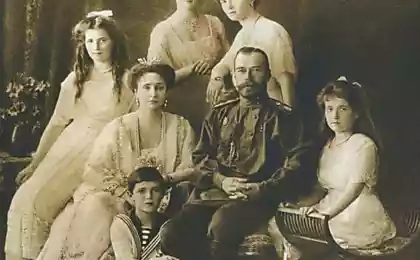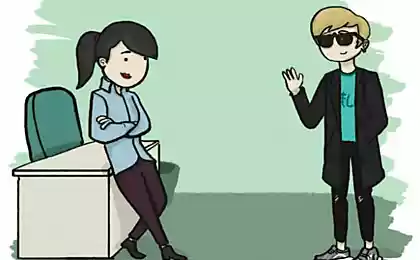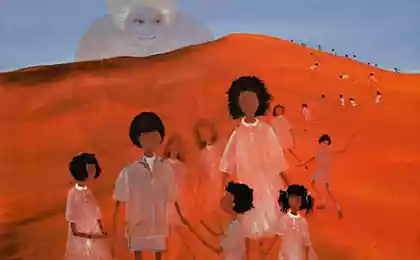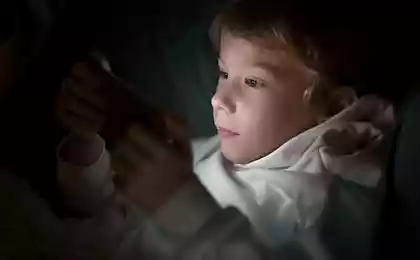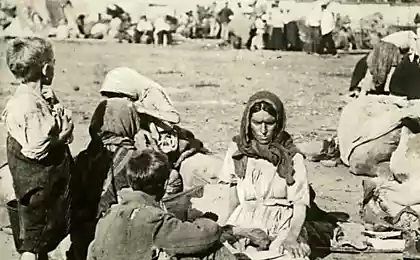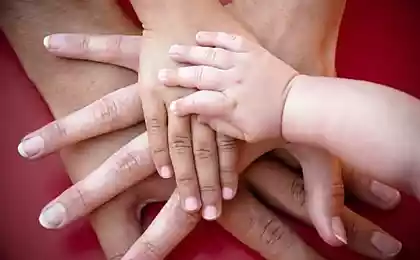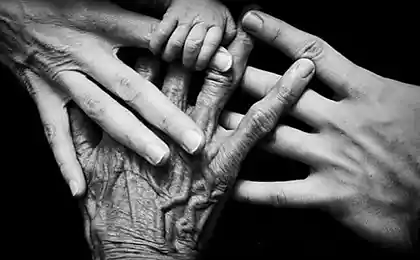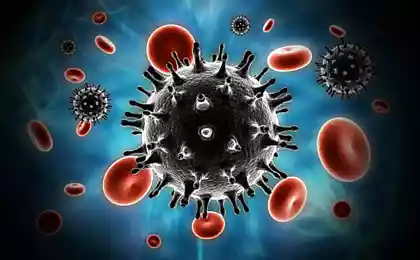676
Generation AIDS
In Burkina Faso, as in most of sub-Saharan African countries, HIV / AIDS prevalence is still relatively high, although, fortunately, the incidence is reduced. The fact that HIV-positive people face rejection and exclusion in society, forcing many to hide their status, a fact that further complicates the treatment and sex education. The country has made some progress in recent years, between 2001 and 2007, it is estimated that the incidence of HIV infection among adults in Burkina Faso has fallen from about 2 per cent to 1 1, 6 percent. Despite these positive trends, however, thousands of people continue to suffer from the devastating impact of the epidemic that wiped out almost an entire generation.
20 photos from here
1. Kouritenga Province, Burkina Faso - A nine Soul alone on his bed. Soul lost both parents to AIDS, his father died when his son was only two years old, and his mother died when Saul was 5 years old. Soul has not yet been tested for HIV.
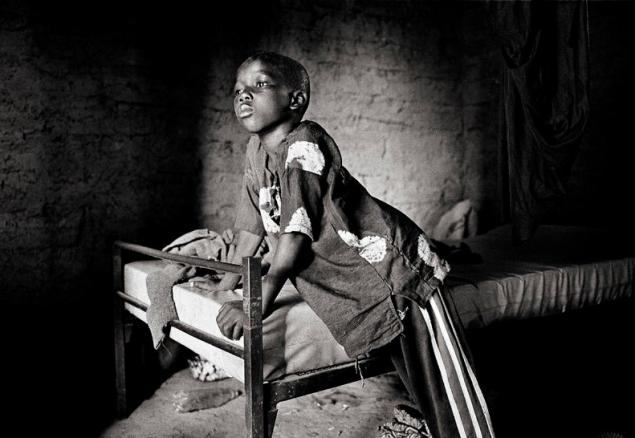
2. Kouritenga Province, Burkina Faso - Dieudonné Vendata, sixteen years old, holds a picture of parents who have died of AIDS. She herself had not yet been tested for HIV.
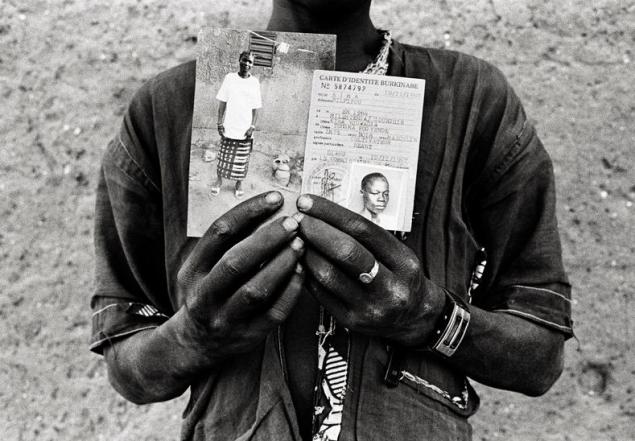
3. Kouritenga Province, Burkina Faso - Eleven-year-Ellis in the field. Alice's father died of AIDS and her mother, who lives with her, is HIV-positive. The very Ellis also passed the test, the result was negative, but the symptoms and signs of the virus in the girl there. Ellis will be tested again after four months.
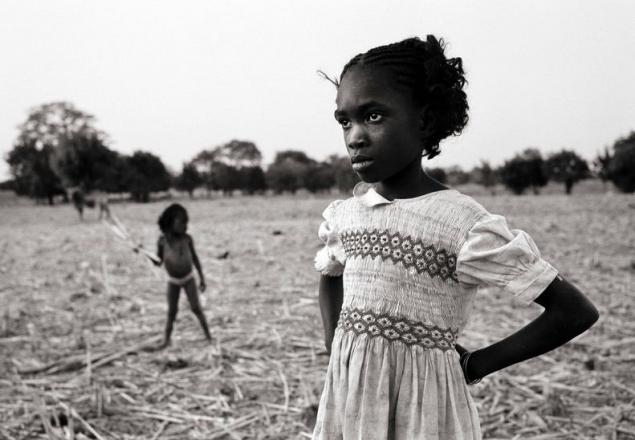
4. Koupela, Burkina Faso - Eloy, who is only 2 days, the mother breastfeeds. Eloy was born to an HIV-positive father and HIV-negative mothers. Breastfeeding is one of the main causes of postnatal transmission of the virus from mother to child.
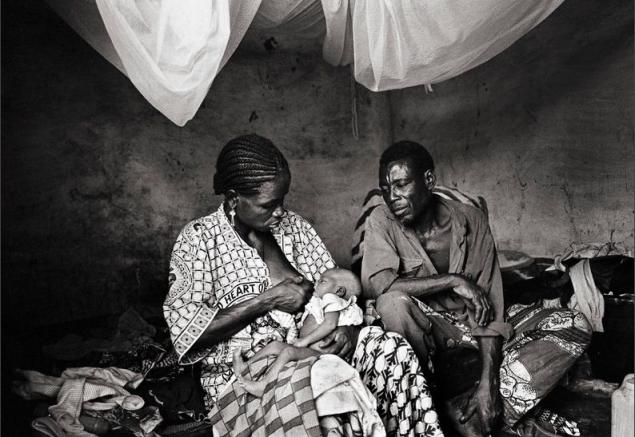
5. Kouritenga Province, Burkina Faso -Shestiletny Rodrigo lying on the ground. Rodrigo lost his father when he was only four years old, his mother is HIV-infected. Children - the most vulnerable populations affected by the epidemic, in 2007, from 62,000 to 130,000 children and adolescents under the age of eighteen years old, lost both parents to the virus.
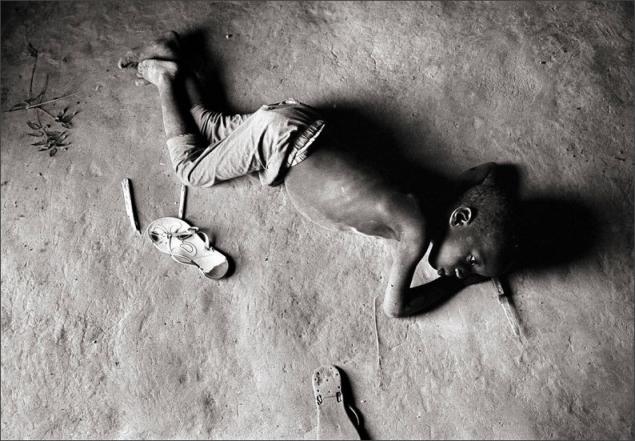
6. fonts, Burkina Faso - Dozens and dozens of test tubes with blood samples await testing in the laboratory. Awareness and education are essential for the prevention of AIDS among the population of the province, however, according to a 2006 UNESCO study, only 24% of the adult population in the country can read and write, the number of literate women almost half lower than that of men.
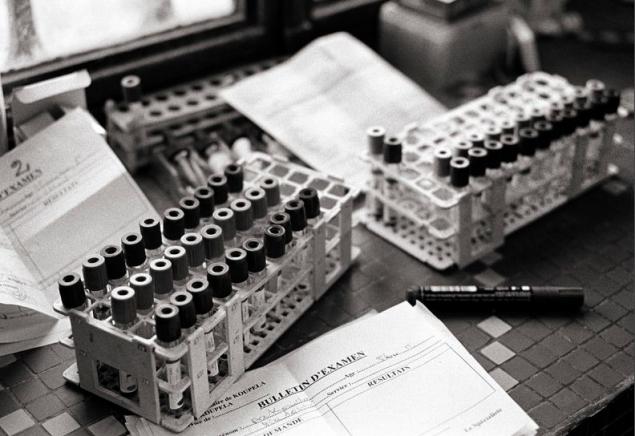
7.Kupela, Burkina Faso - Yvon keeps a statuette of the Virgin Mary. Yvon Parents are HIV-positive and on antiretroviral treatment on a regular basis. Within two years, the number of health centers where antiretroviral treatment is available, in Burkina Faso has increased from 44 in 2005 to 76 in 2007, in fact, increased by more than twice the number of patients receiving treatment.
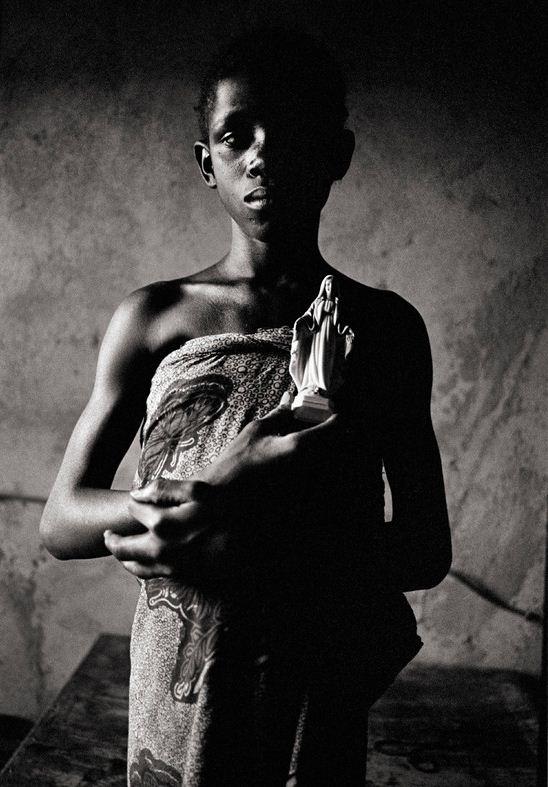
8. Kouritenga Province, Burkina Faso. Prayer and hope - that's all that remains of the inhabitants of the province. According to the International Religious Freedom Report, compiled by the US Bureau of Democracy, Human Rights and Labor in 2009, 19 percent of the population of Burkina Faso are Roman Catholics.
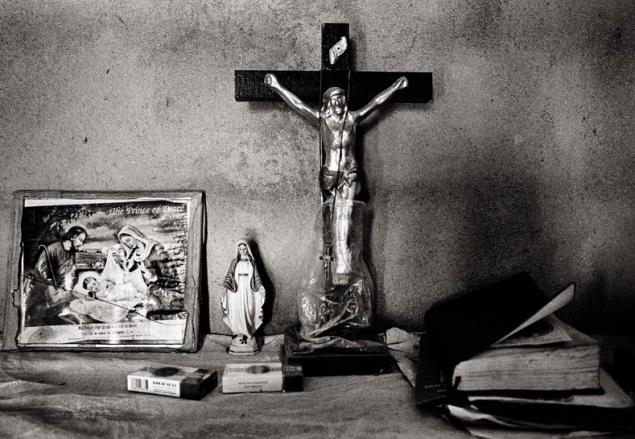
9.Provintsiya Kouritenga, Burkina Faso - Eleven Eli, and his seven-year old sister, Chantal. Eli and Chantal have been orphaned by AIDS - after their parents died of AIDS, their grandparents took them to her.
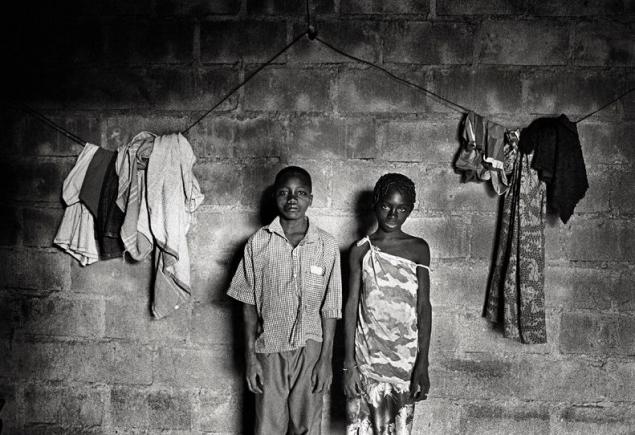
10. The font, Burkina Faso is a man of the street. The fact that HIV-positive people face rejection and exclusion in society, forcing many to hide their status, a fact that further complicates the treatment and sex education.
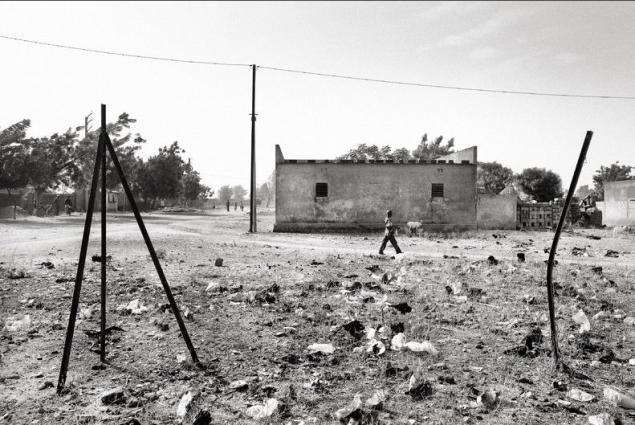
11. Kouritenga Province, Burkina Faso - about forty-two Adzhrata washed clothes hung out. She is HIV-positive for the past eight years. Her husband's brother found the results of its analyzes, and now she does not take any medicine.
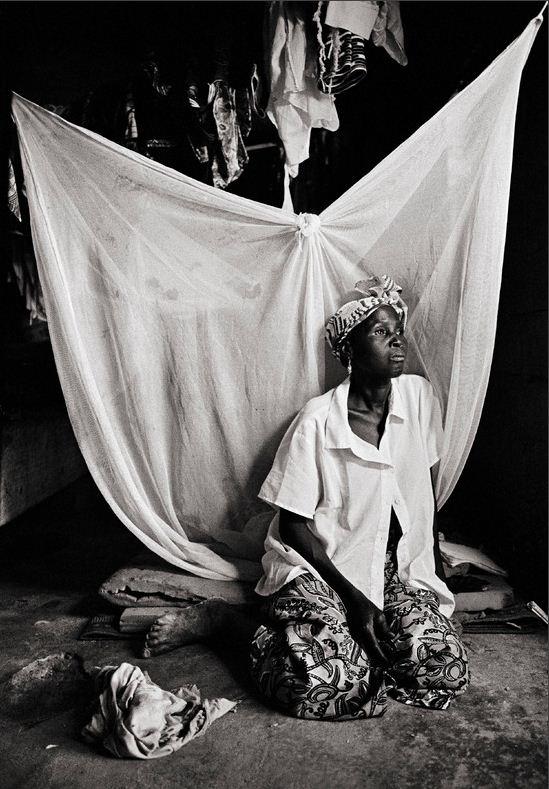
12 Kouritenga Province, Burkina Faso - Many people in Burkina Faso to hide their HIV status for fear of discrimination and stigma that follow after public recognition.
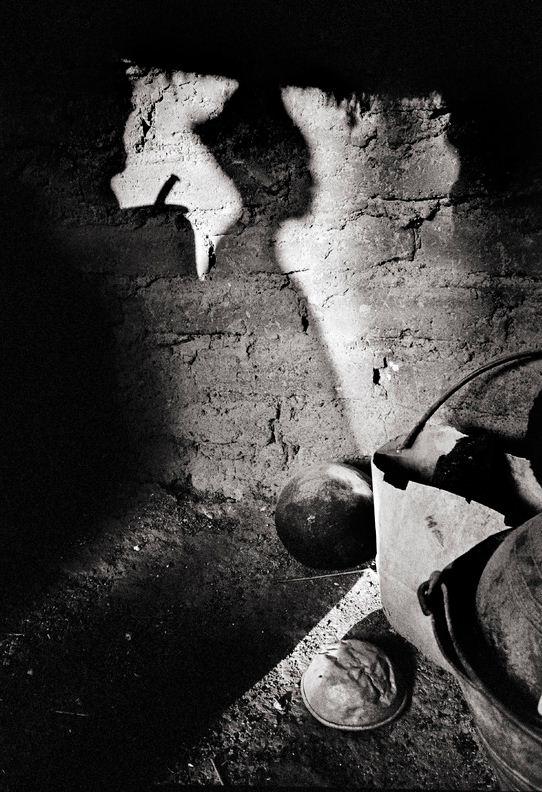
13 Ten-year and seven-year Adar Rakyat live with their aunt and uncle after losing both parents to AIDS. None of them has not yet been tested for HIV.
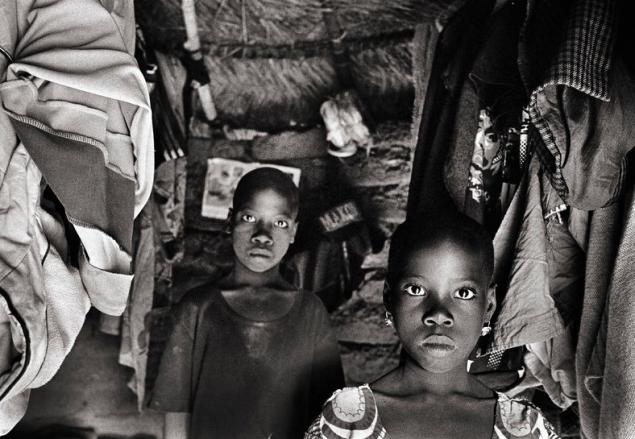
14 Photos of the family Burkina Faso. In many families, almost every member of the family is infected with the HIV virus. In 2007, the disease claimed the lives of 9200 people - on average one person per hour.
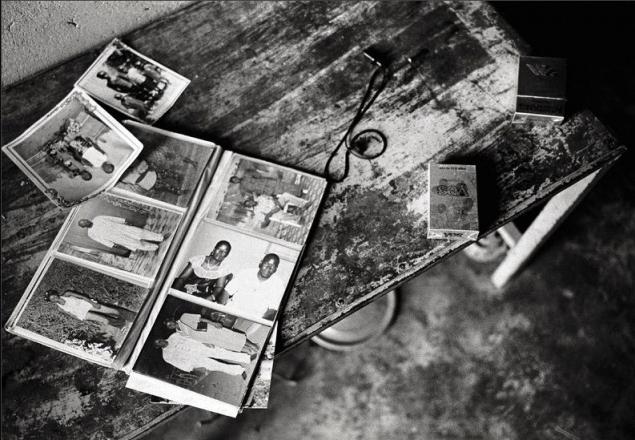
15 eight-year Silvana one left in the village. Sylvain lost his mother when he was 4 years old, his father died in August last year. The villages in which the population is extremely orphaned children in Burkina Faso are not uncommon.
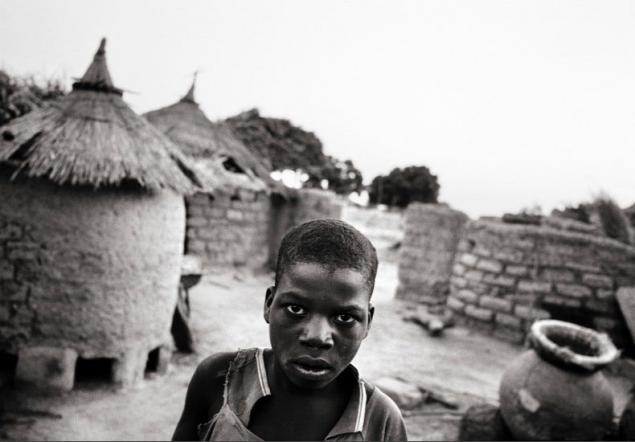
16 Sorokasemiletnyaya Augustine in his bedroom. Augustine had lost her husband to AIDS four years ago. According to the World Health Organization, WHO, 130,000 residents of Burkina Faso have been infected with the virus in 2007.
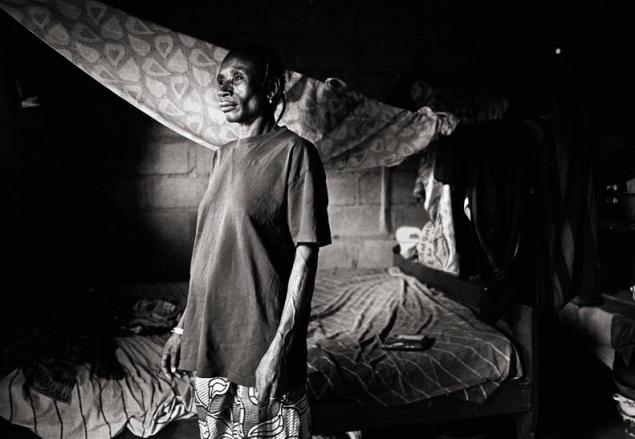
17 Sorokavosmiletny Donatien next to the image of Jesus. Donatien discovered that he was HIV-positive in 2006, analyzes his wife were negative. According to a study conducted by the WHO in 2003, almost 15 percent of adult men of Burkina Faso had more than one sexual partner in the 12 months - the number is in stark contrast to the fact that less than 1 percent of adult women in the country have had multiple partners.
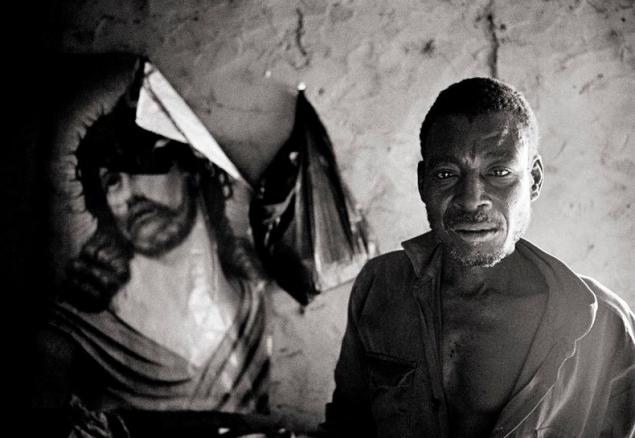
18 Children graze a herd of goats in the province Kouritenga. In 2007, from 62,000 to 130,000 children under the age of 18 have lost both parents to the virus. Few of them have been taken on education and other family members were in orphanages.
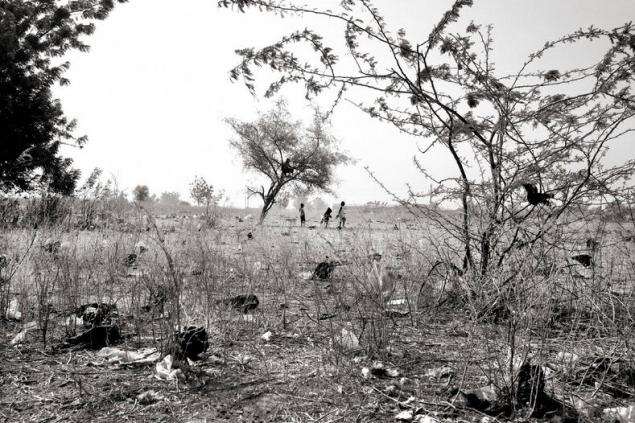
19 forty-two Evariste alone. Evariste learned that he was HIV-positive when he was thirty-seven years after he lost to AIDS wife and son. Awareness and education are essential tools in the fight against the epidemic.
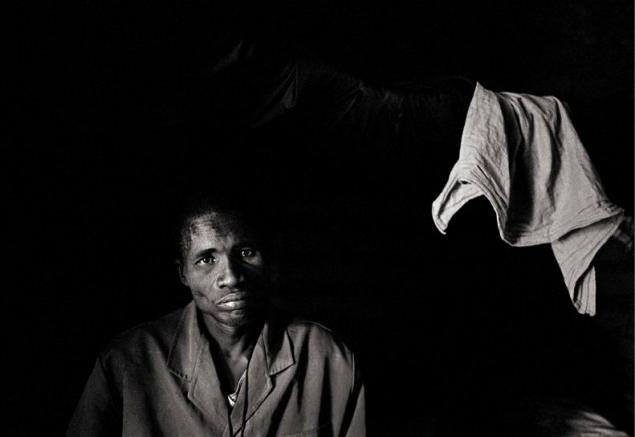
20 Kouritenga Province, Burkina Faso - His exact age Stephanie does not know. She lost her mother in 2000 and his father in 2004 and now lives with her aunt and uncle.
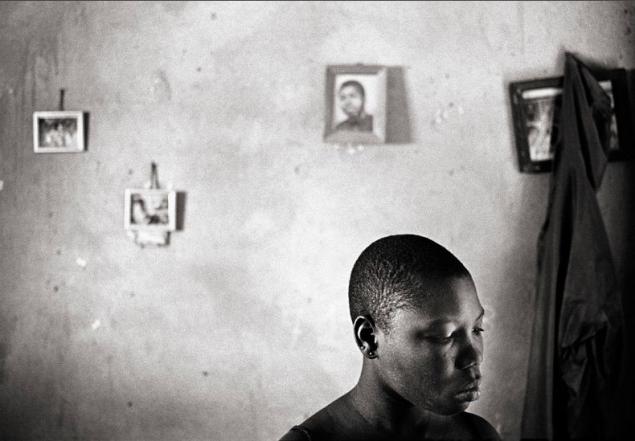
Source:
20 photos from here
1. Kouritenga Province, Burkina Faso - A nine Soul alone on his bed. Soul lost both parents to AIDS, his father died when his son was only two years old, and his mother died when Saul was 5 years old. Soul has not yet been tested for HIV.

2. Kouritenga Province, Burkina Faso - Dieudonné Vendata, sixteen years old, holds a picture of parents who have died of AIDS. She herself had not yet been tested for HIV.

3. Kouritenga Province, Burkina Faso - Eleven-year-Ellis in the field. Alice's father died of AIDS and her mother, who lives with her, is HIV-positive. The very Ellis also passed the test, the result was negative, but the symptoms and signs of the virus in the girl there. Ellis will be tested again after four months.

4. Koupela, Burkina Faso - Eloy, who is only 2 days, the mother breastfeeds. Eloy was born to an HIV-positive father and HIV-negative mothers. Breastfeeding is one of the main causes of postnatal transmission of the virus from mother to child.

5. Kouritenga Province, Burkina Faso -Shestiletny Rodrigo lying on the ground. Rodrigo lost his father when he was only four years old, his mother is HIV-infected. Children - the most vulnerable populations affected by the epidemic, in 2007, from 62,000 to 130,000 children and adolescents under the age of eighteen years old, lost both parents to the virus.

6. fonts, Burkina Faso - Dozens and dozens of test tubes with blood samples await testing in the laboratory. Awareness and education are essential for the prevention of AIDS among the population of the province, however, according to a 2006 UNESCO study, only 24% of the adult population in the country can read and write, the number of literate women almost half lower than that of men.

7.Kupela, Burkina Faso - Yvon keeps a statuette of the Virgin Mary. Yvon Parents are HIV-positive and on antiretroviral treatment on a regular basis. Within two years, the number of health centers where antiretroviral treatment is available, in Burkina Faso has increased from 44 in 2005 to 76 in 2007, in fact, increased by more than twice the number of patients receiving treatment.

8. Kouritenga Province, Burkina Faso. Prayer and hope - that's all that remains of the inhabitants of the province. According to the International Religious Freedom Report, compiled by the US Bureau of Democracy, Human Rights and Labor in 2009, 19 percent of the population of Burkina Faso are Roman Catholics.

9.Provintsiya Kouritenga, Burkina Faso - Eleven Eli, and his seven-year old sister, Chantal. Eli and Chantal have been orphaned by AIDS - after their parents died of AIDS, their grandparents took them to her.

10. The font, Burkina Faso is a man of the street. The fact that HIV-positive people face rejection and exclusion in society, forcing many to hide their status, a fact that further complicates the treatment and sex education.

11. Kouritenga Province, Burkina Faso - about forty-two Adzhrata washed clothes hung out. She is HIV-positive for the past eight years. Her husband's brother found the results of its analyzes, and now she does not take any medicine.

12 Kouritenga Province, Burkina Faso - Many people in Burkina Faso to hide their HIV status for fear of discrimination and stigma that follow after public recognition.

13 Ten-year and seven-year Adar Rakyat live with their aunt and uncle after losing both parents to AIDS. None of them has not yet been tested for HIV.

14 Photos of the family Burkina Faso. In many families, almost every member of the family is infected with the HIV virus. In 2007, the disease claimed the lives of 9200 people - on average one person per hour.

15 eight-year Silvana one left in the village. Sylvain lost his mother when he was 4 years old, his father died in August last year. The villages in which the population is extremely orphaned children in Burkina Faso are not uncommon.

16 Sorokasemiletnyaya Augustine in his bedroom. Augustine had lost her husband to AIDS four years ago. According to the World Health Organization, WHO, 130,000 residents of Burkina Faso have been infected with the virus in 2007.

17 Sorokavosmiletny Donatien next to the image of Jesus. Donatien discovered that he was HIV-positive in 2006, analyzes his wife were negative. According to a study conducted by the WHO in 2003, almost 15 percent of adult men of Burkina Faso had more than one sexual partner in the 12 months - the number is in stark contrast to the fact that less than 1 percent of adult women in the country have had multiple partners.

18 Children graze a herd of goats in the province Kouritenga. In 2007, from 62,000 to 130,000 children under the age of 18 have lost both parents to the virus. Few of them have been taken on education and other family members were in orphanages.

19 forty-two Evariste alone. Evariste learned that he was HIV-positive when he was thirty-seven years after he lost to AIDS wife and son. Awareness and education are essential tools in the fight against the epidemic.

20 Kouritenga Province, Burkina Faso - His exact age Stephanie does not know. She lost her mother in 2000 and his father in 2004 and now lives with her aunt and uncle.

Source:

